Graham Reid | | 4 min read
Otis Mace
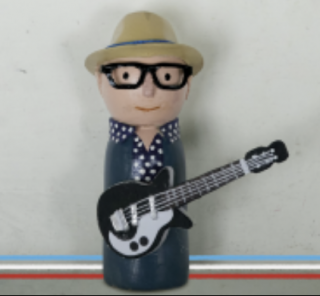
One of the most pleasurable and wryly amusing albums we have heard this year comes from Alan Gregg, a former member of Dribbling Darts of Love and the Mutton Birds.
As Polite Company, his album Please Go Wild (a tongue-in-cheek reference to how MCs sometimes introduce an artist) caught our attention for its acute and very British observations of life in the 21st century.
He wrapped his words up in memorable acoustic-driven songs also and in our review we concluded "very clever pop with much to say about these times".
Time then for Britain-based Gregg to answer a few questions.
.
Where did you grow up, and with who?
I grew up in Palmerston North, with my family.
.
Was music an important part of your childhood?
Yes. I had older brothers who were nuts about music and who were always playing all kinds of things from Black Sabbath to Kraftwerk to Miles Davis. I had lessons learning to play the organ when I was young. And in high school I played keyboards in a ska band.
.
What are your earliest childhood memories of music which really affected you . . .
My family had a record called ‘Danny Kaye for Children’ which I loved. ‘Tubby the Tuba’ etc.
.
Was there a time when you felt it was going to be music and nothing else?
For the first year I was in The Mutton Birds I was also working for a record company in Auckland. It became apparent that I couldn’t do both so I took the plunge into being a musician. During that time I played bass on Dave Dobbyn’s album ‘Twist’, which was an incredible experience.
A few months after that I needed part time work again so I worked in a record company warehouse packing albums in boxes. One of the best selling albums in New Zealand at the time was ‘Twist’ by Dave Dobbyn. So there I was packing and dispatching CDs of the album that I had played on just a few months earlier. I knew then that I’d hit the big time.
.
When you started on your music career were people around you supportive or did you have to find those people?
Many of my friends at the time were aspiring actors, comedians or musicians so people were supportive. Nobody knew what they were doing and neither did I.
.
The first song of yours which you really felt proud of was . . .? And why that one?
‘Come Around’ from the Mutton Birds album ‘Envy of Angels’. Because it got a lot of radio play in the UK when the band was based there. Walking into a shop on Oxford Street in London and hearing your song playing is pretty exciting. The radio play helped to get more British people along to our shows, and it helped us move to bigger venues.
.
Any one person you'd call a mentor, angel on your shoulder or invaluable fellow traveller?
Don McGlashan was a mentor. Early on in The Mutton Birds he came back from a holiday and when he came into the rehearsal room he asked if anyone had written any songs while he was away. It had never even crossed my mind to write a song, but I decided that next time he asked that question I was going to have something ready.
A few months later I gave him a cassette with some songs I had recorded on a four-track at home. Don was the first person to hear them and I remember he said to me,“You’re a writer.”
.
Where and when was the first time you went on stage as a paid performer?
I think it was at The Lion Tavern in Palmerston North in a school band called The Audience supporting Netherworld Dancing Toys.
.
Ever had stage fright or just a serious failure of nerve before going on stage?
I played for a while in Bic Runga’s band and we supported The Bee Gees at Western Springs in Auckland in 1999, but on that occasion we played as a duo, just Bic and I. I remember before we played looking out at my little glockenspiel set up on the stage in front of tens of thousands of people and thinking seriously about doing a runner.
.
As a songwriter, do you carry a notebook or have a phone right there constantly to grab ideas they come? Or is your method something different?
I have gone through phases of carrying a notebook, but I’m not sure it helped a great deal. Usually when I looked back at what I wrote down I wondered why I ever thought it was a good idea. I’ve never really found a phone useful for songwriting.
I often find that a whole verse or chorus will appear at once but it can take months of playing around with that for the rest of the song to emerge. If a phrase or idea is really memorable it tends to stick around, notebook or no notebook.
.
What unfashionable album do you love as a guilty pleasure?
Phil Collins ‘No Jacket Required’. I was working in a record shop in Palmerston North when it came out and I heard that album every day for six months and I loathed it. These days when I hear those opening chords of ‘One More Night’ I’m immediately transported back to being a happy teenager in a provincial town.
.
Any piece of advice you were given which you look back on which really meant something?
I once heard someone say that writing is an act of listening, which blew my mind at the time and still does today. It reminds you to be in a state of open receptiveness rather than assuming that you’re the grand creator making some masterpiece.
.It's after a performance/concert and you are in a hotel room or back at home, what happens then?
Peppermint tea if I have any. Sometimes two cups.
.
Is there any fellow artist you admire for professional and/or personal reasons?
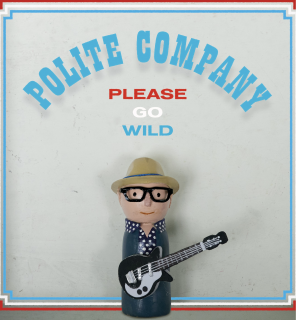 I think Edmund Cake is a uniquely talented songwriter and musician. I’ve never heard music like his. He can write heartbreaking melodies (‘Golden Man’) and then something completely off the wall (‘Gunga’).
I think Edmund Cake is a uniquely talented songwriter and musician. I’ve never heard music like his. He can write heartbreaking melodies (‘Golden Man’) and then something completely off the wall (‘Gunga’).
His album ‘Downtown Puff’ is a great overlooked masterpiece.
.
And finally, where to from here for you do you think?
I’d like to play these songs live which I’m figuring out how to do now. The album wasn’t really made with live performance in mind and several songs feature a brass section.
Unfortunately I don’t have one of those, but I’ll figure it out somehow.
.
You can hear and buy this album at bandcamp here

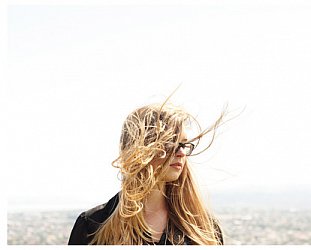
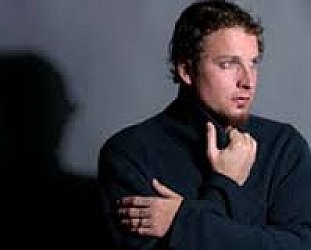
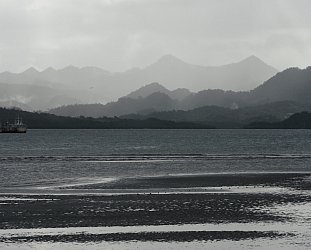
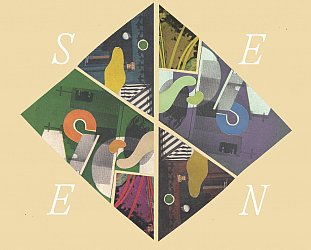
post a comment